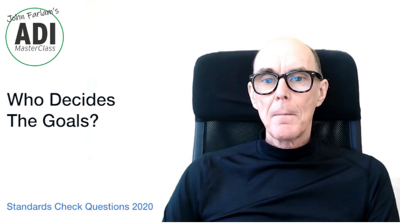

Many instructors kick off the 'goals process' with a misplaced question - "What would you like to do today?"

When trying to adopt a client-centred goal setting approach some instructors ask their learners something like "What would you like to do today?" and wonder why they are faced with blank faces followed by a painful ten minutes that's akin to pulling teeth... In the video I explain the issue.
Learning goals are specific statements of what the learner intends to achieve during the lesson.
Goals can relate to knowledge, attitudes, feelings or skills. The term ‘goals' has been around for a long time; instructors using a traditional (teacher-centred) approach to training often use the term ‘teaching goals' – however, when adopting a ‘client-centred' approach we focus on ‘learning goals' or ‘lesson goals'.
Goals can be long term, for example ‘To learn all the slow speed manoeuvres' or ‘To pass the driving test' – or short term, for example ‘To complete a reverse park exercise unaided' or ‘To slow down early for the next three junctions'.
The difference between ‘teaching goals and ‘learning goals' is simply their origin. ‘Teaching Goals' originate with the instructor – ‘Learning Goals' come from the learner.
Important: While the learning goals must be understood and agreed with by the learner, the learner might not always be able to originate goals for themselves. The instructors job is, as much as possible, to be a facilitator in the goal setting process - but you must remember that goals are not always the same as 'wants'. You must pay attention to the learner's needs, sometimes their 'wants' will be not be practical or will not offer sufficient challenge.